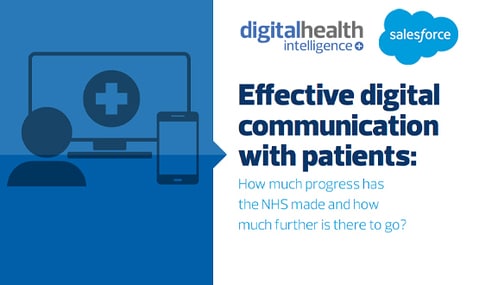Unclear whether Granger will be replaced
- 29 October 2007
The Department of Health has rejected strong rumours that one of its senior policy advisers, Matthew Swindells, has been appointed interim chief executive of NHS Connecting for Health, replacing Richard Granger.
In a statement to E-Health Insider the department that suggests Granger may not be replaced and that following review of NHS IT now underway, the current Connecting for Health agency may potentially be recast or even replaced.
In a statement to EHI the Department of Health (DH): “Since Richard announced his resignation, David Nicholson has set up a review of how the NHS uses informatics to improve patient care.”
The statement said the review now underway is not specifically of NPfIT or CfH, but will cover the work of both: “This is not a review of Connecting for Health or the National Programme for IT, but the contribution of both will be included within this wider work, as recommended by [health minister] Ara Darzi in his NHS Next Stage Review.
In the light of these developments, David now thinks the time is right to look closely at what skills and management arrangements we need to take Connecting for Health forward. We expect to be able to outline this before the end of the year. In the meantime, Richard Granger and his team continue to do an excellent job in leading the programme."
The DH refuses to say more than that the chief executive of Connecting for Health, the agency responsible for NPfIT, is expected have left by the end of year. It has also repeatedly declined to provide any indication of when and if a successor will be appointed.
In a statement to EHI the DH said: “Richard Granger remains the director general [of NHS IT] until he leaves the department, which is expected to be the end of the year.”
Swindells is known to have led the review of the NHS IT Programme on behalf of NHS chief executive David Nicholson and be heavily involved in the wider review signaled by health minister Lord Darzi earlier this month, designed to ensure NPfIT delivers greater clinical benefits than it has achieved to date.
The DH told EHI: “Matthew Swindells is working for David Nicholson on the review of informatics that was announced in Lord Darzi’s interim Next Stage report.”
EHI understands that as a result of the review announced by Lord Darzi earlier this month implementation of the recommendations of the earlier Gibbs review have been suspended.
The apparent lack of a replacement leaves succession plans for leadership of the UK’s largest civil IT project, the £12.4bn NHS National Programme for IT, shrouded in mystery. Even after the introduction of the NPfIT Local Ownership Programme, CfH is still responsible for the national contracts for England. Clear leadership and succession planning is generally regarded as an essential attribute for the success of complex IT projects.
Industry sources had strongly indicated that the appointment of Swindells had occurred. In 2006 Swindells was named by the Health Service Journal as the twelfth most influential man in the NHS – placing him ten positions above Richard Granger.
Swindells, ex-chief executive of Royal Surrey County Hospital Trust, is a senior health policy adviser said to have been closely linked to NHS reforms such as PCT reconfiguration and the white paper Our Health, Our Care, Our Say, based on shifting services from hospitals into the community.




